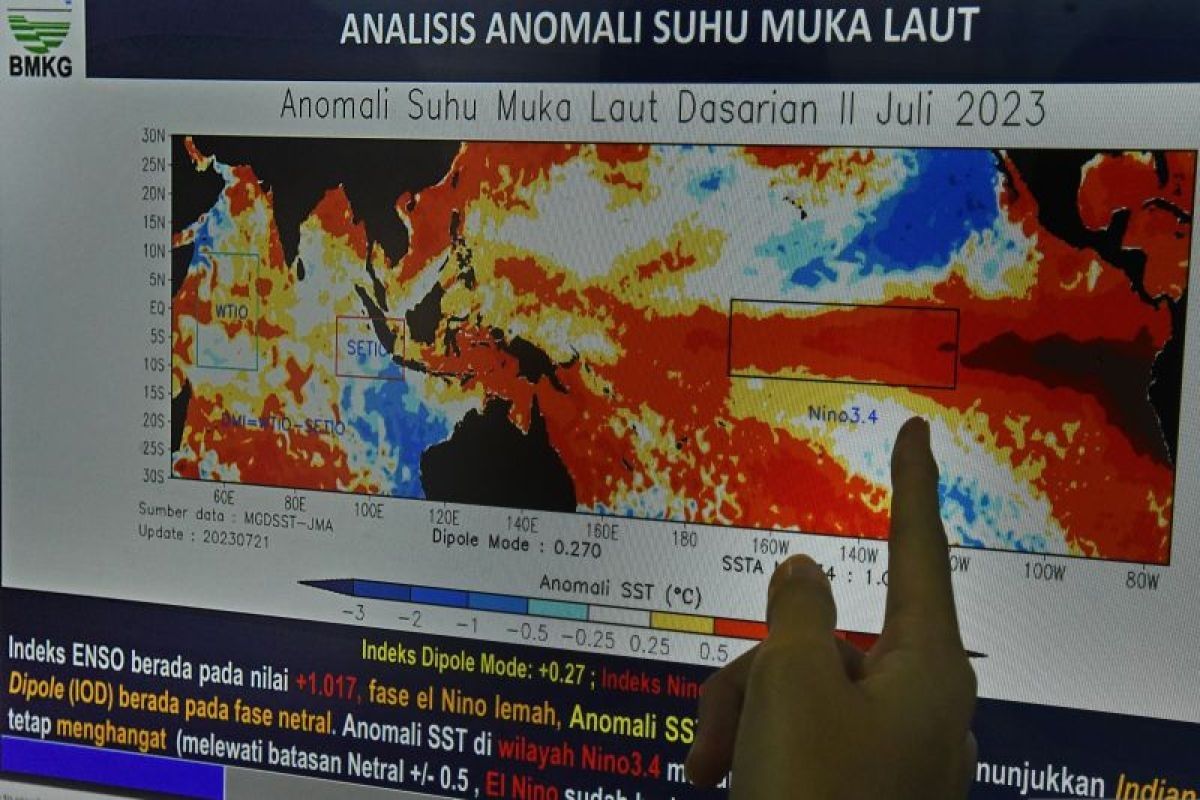"The evaporation rate is higher, causing more loss of water and increasing the transpiration rate, which makes plants need more water," he said on Friday.
He explained that if the air temperature increases at night, the results of photosynthesis will be removed through transpiration, so that crop yields decrease.
In certain plants, such as rice, the primordial blossoming period is the most sensitive phase to temperatures above 35 degrees Celsius. High temperatures can cause pollen to abort, leaving the plant empty, Nugraha added.
He suggested that farmers carry out mitigation by planting varieties that are resistant to high temperatures.
According to him, currently there are only a few rice varieties that are tolerant of high temperatures, one of which is Inpari Digdaya.
"There is no history of high-temperature stress in Indonesia, unlike other tropical countries located more than 11 degrees north latitude," he said. "Therefore, the adaptation of most rice varieties here has not been rigorously tested."
A heatwave is currently striking several countries in Asia, including the Philippines, Thailand, India, and Bangladesh.
Although air temperatures have increased in several Asian countries and damaged their agricultural land, no reports have been received of the impact of this phenomenon in Indonesia, Nugraha said.
"Maybe because Indonesia is a bit further south of the equator (potentially reducing the heat effect)," he explained.
Related news: Indonesia safe from Asian heatwave, says BRIN researcher
Related news: Scorching temperatures across Indonesia not caused by heatwaves: BMKG
Translator: Sugiharto Purnama, Resinta Sulistiyandari
Editor: Anton Santoso
Copyright © ANTARA 2024












